Howard Andrew Jones's Blog, page 31
July 8, 2016
Dreams of Sword-and-Sorcery
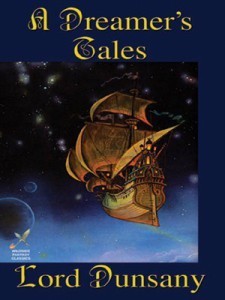 With my insomnia fading I’m having dreams again, and I experienced a really enjoyable one just this last night. I fell in with a group of people making a low-budget sword-and-sorcery movie and got to write the script for the thing. It was all just a lark, done in spare time rather than through a movie studio, but done with professionalism as well. I suppose it was inspired in part by the loving attention and can-do attitude with which the Star Trek Continues people craft their episodes, because me and the dream people were even talking about STC while I dreamt.
With my insomnia fading I’m having dreams again, and I experienced a really enjoyable one just this last night. I fell in with a group of people making a low-budget sword-and-sorcery movie and got to write the script for the thing. It was all just a lark, done in spare time rather than through a movie studio, but done with professionalism as well. I suppose it was inspired in part by the loving attention and can-do attitude with which the Star Trek Continues people craft their episodes, because me and the dream people were even talking about STC while I dreamt.
Of course, once I woke up, I realized the things in the dream were impossible to do on a small budget in spare time — the sets for the long ship alone, not to mention the filming up of it, would have been astronomical. But man, was it fun coming up with a slightly cheesy but really fun script. In the light of day I don’t even remember what the details were. Probably it didn’t make that much sense.
It was a good time, though, and it was interesting to dream about creating something. Decades ago I had a recurring dream that I’d written a science fiction series. I can still remember what some of the covers looked like…
Star Stuff
 “For small creatures such as we the vastness is bearable only through love.”
“For small creatures such as we the vastness is bearable only through love.”
— Carl Sagan
For more wonderful, wise, and eloquent thoughts, check here.
And if you need a reminder of more wonderful things, click here.
July 5, 2016
Jacobson up for Chesley!
 I loved the cover art for my third Pathfinder novel, Beyond the Pool of Stars, since I saw it in rough sketch form. I learned just the other week that estimable artist Tyler Jacobson, creator of said art, is one of the finalists for this year’s Chesley award for that very cover! Pretty cool!
I loved the cover art for my third Pathfinder novel, Beyond the Pool of Stars, since I saw it in rough sketch form. I learned just the other week that estimable artist Tyler Jacobson, creator of said art, is one of the finalists for this year’s Chesley award for that very cover! Pretty cool!
Good luck, Tyler!
June 30, 2016
Marching On
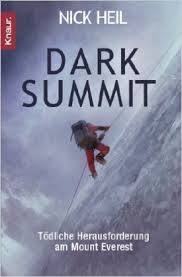 The days have marched on at their steady pace. I’m still struggling with insomnia of a different sort than I usually have. This is the more traditional kind, meaning that no matter how tired I am, my mind races for hours, and if I should jolt awake at night I can’t get back to sleep. I’m still trying to find the best solutions to the problem. I’ve had some better writing days, but no truly good ones, and today I’m going to hunker down and get some work done around the house. Maybe some honest-to-God manual labor will help wear me out even more so I can feel more sleepy.
The days have marched on at their steady pace. I’m still struggling with insomnia of a different sort than I usually have. This is the more traditional kind, meaning that no matter how tired I am, my mind races for hours, and if I should jolt awake at night I can’t get back to sleep. I’m still trying to find the best solutions to the problem. I’ve had some better writing days, but no truly good ones, and today I’m going to hunker down and get some work done around the house. Maybe some honest-to-God manual labor will help wear me out even more so I can feel more sleepy.
Still, I got some changes made to the first novel and turned back over to my editor. There are more changes I want to make, many of which were suggested by Ian Tregillis, John O’Neill, or my wife, and I also need to get to starting the next draft of the second book.
Spurred by renewed talk about the historical swashbuckler Captain Alatriste I’ve been working my way through it, although I got sidelined when my daughter started reading the Everest expedition/disaster memoir Into Thin Air. I started reading it myself and got hooked, then read another similar volume about more recent climbing season, Dark Summit. I’m not sure why, but I’m occasionally interested in reading about mountain climbing, probably in part because I can’t imagine ever doing it myself.
I have an interesting looking e-book by an up-and-coming sword-and-sorcery writer I’ve been meaning to start, and I’ll probably tackle that next.
June 23, 2016
Insomnia
 I’ve been wrestling with terrible insomnia for the last couple of weeks. I can get to sleep just fine, but I keep waking up.
I’ve been wrestling with terrible insomnia for the last couple of weeks. I can get to sleep just fine, but I keep waking up.
Apart from the month following my mom’s heart attack this has been the worst impediment to my writing since I became a professional. Progress in the last ten days has slowed nearly to a crawl. I can exist, but putting words down in any kind of clever way has felt more and more like a vertical climb.
I’m taking some medical action now under physician advice and hope soon that I can return to my usual work pace.
June 22, 2016
Absences
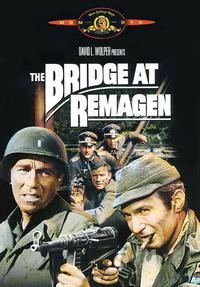 I think my absence last week was the longest I’ve had from the blog. I mean, even when I went to Europe with the family last year I had posts programmed to go up. Admittedly they were pretty dull and dealt mostly with choosing the perfect writing notebook, but at least something was happening here.
I think my absence last week was the longest I’ve had from the blog. I mean, even when I went to Europe with the family last year I had posts programmed to go up. Admittedly they were pretty dull and dealt mostly with choosing the perfect writing notebook, but at least something was happening here.
I didn’t post because I didn’t want to discuss the terrible events in Orlando. It was enough to read about the attack and talk about it with my family. I didn’t want to do that here. Yet talking about anything else at the time just seemed frivolous. So I simply walked away from the blog for a while.
With my wife and daughter away for ten days my first born and I have been having a manly movie marathon. My wife doesn’t much care for westerns (apart from The Magnificent Seven and Silverado) or any World War II movie, so my son and I have been watching a bunch of both. With Father’s Day occurring right in the midst of the marathon, this movie watching expedition also has been partly in remembrance of my own father. We’ve watched a few more modern movies, but for the most part we’ve sat down with movies I remember seeing with him.
And for the most part, we’ve really enjoyed them. I’ll probably draft something about the movies the next time I post.
I also have some exciting publishing news in the works, but I’m going to hold off on an official announcement until the ink on the paper is dry.
June 10, 2016
Devil May Care
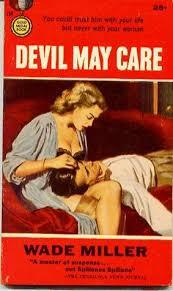 The old saying goes that you shouldn’t judge a book by its cover, which is a nice sentiment and all, but doesn’t usually hold water as far as actual books. Yes, occasionally a great book is hiding behind a terrible illustration, but more often, as my first born Darian says, “it turns out that no.” A bad cover might mean the publisher either didn’t have their act together or didn’t believe enough in the product to bother hiring a good artist.
The old saying goes that you shouldn’t judge a book by its cover, which is a nice sentiment and all, but doesn’t usually hold water as far as actual books. Yes, occasionally a great book is hiding behind a terrible illustration, but more often, as my first born Darian says, “it turns out that no.” A bad cover might mean the publisher either didn’t have their act together or didn’t believe enough in the product to bother hiring a good artist.
Or it might mean that the novel isn’t marketed for you… or that it was marketed in another time.
A case in point is this great adventure novel from the 1950s by the writing team of Wade & Miller. They’re one of my favorites from Chris Hocking’s pulp list, and I hope to go into detail about them later this year. But judging from that cover, which suggests some kind of romance with a hot dame and a brooding lunk, I’d never have picked it up.
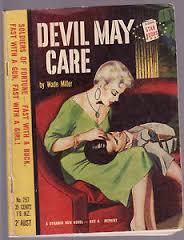 Then consider the cover copy: “You could trust him with your life but never with your woman” or the promotional words on the back: “He was the kind of guy you should meet — once. He was Too Fast with his money — Too Fast with a girl — Too Fast with a gun. He was doing all right, until he met a hungry blonde in a bar in Mexico. She was hungry for his money, hungry for him and even hungrier for his gun.”
Then consider the cover copy: “You could trust him with your life but never with your woman” or the promotional words on the back: “He was the kind of guy you should meet — once. He was Too Fast with his money — Too Fast with a girl — Too Fast with a gun. He was doing all right, until he met a hungry blonde in a bar in Mexico. She was hungry for his money, hungry for him and even hungrier for his gun.”
Pretty terrible, right? Well, the book isn’t, and is only tangentially related to any of that text. For instance, our protagonist DOES meet a woman in a bar in Mexico, but she’s not especially interested in him, and he’s actually pretty careful with his money.
This book wasn’t marketed at me, but at male readers in 1950, and it went through at least six printings, with cover changes. None of those covers would do much to entice me if I didn’t know just how excellent Wade & Miller were.
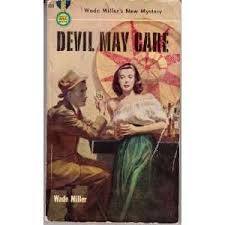 This is one of their books I read that made me search out almost every novel the two ever wrote together, and it just kept surprising me. Who knew I’d be interested in an aging mercenary headed to Mexico in 1950, or his troubles with an old frenemy, or his romantic entanglements? Wade Miller veered the narration into uncomfortable places and then barely steered clear, providing us with complex characters who grew as people and came through for each other — or showed their true colors — in astonishing ways. The narrative drive just just kept charging on.
This is one of their books I read that made me search out almost every novel the two ever wrote together, and it just kept surprising me. Who knew I’d be interested in an aging mercenary headed to Mexico in 1950, or his troubles with an old frenemy, or his romantic entanglements? Wade Miller veered the narration into uncomfortable places and then barely steered clear, providing us with complex characters who grew as people and came through for each other — or showed their true colors — in astonishing ways. The narrative drive just just kept charging on.
I liked it so much I sent my first copy off to a friend and picked up another.
And I just finished a second reading and loved it even more. I think it’s one of Wade Miller’s very strongest titles. If you’re at all interested in hard boiled fiction, or adventure novels from the ’50s, or good thriller writing, you should track down a copy. You’re lucky, because they’re plentiful. The usual warnings about sexist and racist stuff from older times apply — except that those attitudes appear only to be those of the characters and not the writers. For instance, that “hungry blonde” comes across as a real person rather than the object the protagonist first assumes her to be. You won’t find modern women in here, but you’ll find women of the ’50s depicted as real people, or at least in a far more realistic way than you’d assume from that terrible cover…
June 7, 2016
Dabir and Asim Return
 For the first time this year I’ve sold a short story. I’m delighted to relay that the upcoming Skelos magazine will be carrying a never-before-published Dabir and Asim story in its second issue! You can see magazine details here and there is, briefly, still time to get in on its kickstarter.
For the first time this year I’ve sold a short story. I’m delighted to relay that the upcoming Skelos magazine will be carrying a never-before-published Dabir and Asim story in its second issue! You can see magazine details here and there is, briefly, still time to get in on its kickstarter.
I still fully plan to finish writing at least one more Dabir and Asim novel. If I can actually maintain the pace with this current set of drafts, I hope to find time to create a new Dabir and Asim every other year or so and market it as an e-book. That’s assuming that the next one sells, and that ANY of my next books sell, of course. I think they will, I plan for them to sell, but one does have to be realistic about these things.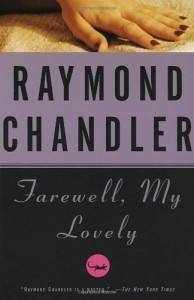
Over the weekend I discovered it was possible to over-Chandler ones self, although reading a bunch of Chandler was a great antidote to fantasy. I was able to resume editing my own prose Monday morning with pretty clear eyes and see a number of little things here and there that needed fixing up.
My new(ish) writing method allows for quick drafting, but if I’m not careful the result can be kind of sparse, so I’m going back through and adding in a lot more background detail and a little more personality to some of the point of view stuff. It’s going slower than I intended, but I’m also pleased with the result. And since I don’t yet seem to be a writer who’s become self-indulgent, I think if I’m happy with it you probably will be.
As to being overly Chandlered, there suddenly came a point when Marlowe (or Dalmas) had been knocked out too many times, and my faith in Chandler’s plotting grew shaken, especially after seeing how he was tying up older stories together. My mistake was probably reading all the stories he’d never wanted reprinted because he’d cannibalized them to draft a number of his books. It was pretty educational, though, as to studying his methods.
I could go on, but this post is fragmented enough as it is. I’ll drift back to talking about Raymond Chandler eventually, I’m sure, and will try to discuss my thoughts in more detail then.
June 3, 2016
Chandlering Around
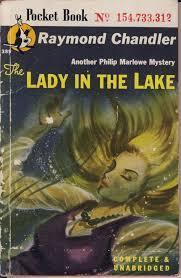 Between a whole lot of revising, thinking about revising, and a mess of home repairs and organizational stuff, spending much time updating the site has felt like a luxury. I hope to be a little more active here in the coming weeks, but I can’t guarantee it.
Between a whole lot of revising, thinking about revising, and a mess of home repairs and organizational stuff, spending much time updating the site has felt like a luxury. I hope to be a little more active here in the coming weeks, but I can’t guarantee it.
To wind down in the evenings I’ve continued dipping into various books and short story collections. Typically, while I’m revising, I re-read favorite authors to remind myself of great techniques, and so I’ve been reading some Raymond Chandler short stories. It’s not quite re-reading in some of the cases, because many of them are new to me. And I’ve discovered that the lyricism present in the novels and later stories isn’t as prevalent in his early work, as you’d probably figure. To really soak up the best of his style I’ll probably start re-reading Farewell, My Lovely over the weekend.
In the meantime, though, here’s a link to an interesting essay about Chandler’s revision process. If you haven’t read The Long Goodbye (or even if, like me, you haven’t read it recently) some of it might be too particular to be of use — but there are other details that should be of interest to any writer.
I find that I’m also curious about the work of writer Mike Coggins, who wrote the rather fascinating essay. My to-be-read pile is tottering already, but I like the essay well enough I’ll probably look into his books.
May 31, 2016
Strange Juxtapositions
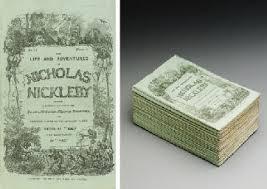 Upon reflection I find that I’ve been poised between the old and the new a lot in the last few days. For instance, while a passenger on the way to the Tennessee Renaissance Festival, I was reading Nicholas Nickleby. Immediately after finishing Nicholas Nickleby I started reading some hard boiled detective short stories from several omnibuses I’ve acquired.
Upon reflection I find that I’ve been poised between the old and the new a lot in the last few days. For instance, while a passenger on the way to the Tennessee Renaissance Festival, I was reading Nicholas Nickleby. Immediately after finishing Nicholas Nickleby I started reading some hard boiled detective short stories from several omnibuses I’ve acquired.
And, of course, I just finished the rough draft of one novel and am getting ready to start work on the slightly less new one I finished a draft of a few months back.
Maybe I could find this kind of old and new parallel every week if I tried, but it struck me as curious. I mean, I guess any Dickens is pretty old, but not as old as the Reniassance, and that the short stories I was reading were at least 50 years old, but not as old as Nicholas Nickelby, so maybe the problem is I’m reading nothing new.
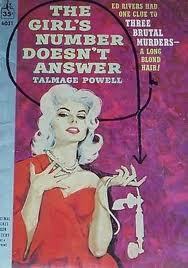 Or maybe there isn’t a problem at all. Most curious, of course, was the pronounced difference in style between Nicholas Nickleby and the hardboiled stuff I tore through over the long weekend. That was deliberate. I love me some Dickens, but those novels are weighty and wandering, two qualities that hardboiled fiction studiously avoids
Or maybe there isn’t a problem at all. Most curious, of course, was the pronounced difference in style between Nicholas Nickleby and the hardboiled stuff I tore through over the long weekend. That was deliberate. I love me some Dickens, but those novels are weighty and wandering, two qualities that hardboiled fiction studiously avoids
Much like the last 1/4 of David Copperfield, the last 1/4 of Nicholas Nickelby wasn’t as entertaining as what had come before. It took its time wrapping up, which could be wearying. I also tired of the helpless, rather characterless women — Dicken’s ideal mate for hearth and home, apparently.
On the other hand, there are numerous strengths, first among them being Dickens’ great gift for language and satire, and eye for comedy, and his ability to depict the highs and lows of humanity with great accuracy. Copperfield definitely is a better book, being deeper, but I found myself less annoyed with the final quarter of Nickelby than I was the final quarter of Copperfield, with its great reliance upon the irritating Uriah Heep and the wearying Macawber. I’ve read some who say that the female characters in Great Expectations and Our Mutual Friend have a lot more depth, so I’ll try one or both of them next. Just not right away.
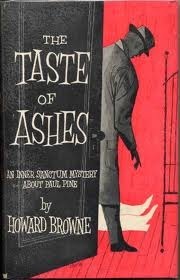 As to that hard boiled fiction, man, reading some of that after Dickens is like taking a punch to the gut. My favorites were Leigh Brackett’s “So Pale, So Cold, So Fair,” Howard Browne’s “So Dark for April,” and Talmage Powell’s “Her Dagger Before Me.” I always love Brackett, but I liked Browne’s short story better than hers, which put me in mind of the Browne omnibus I pre-ordered from Haffner press some year and a half ago. Every few weeks I check to see if it’s been released yet, but it still hasn’t, alas. I know that the cover artist died and that another has been hired, which I sympathize about.
As to that hard boiled fiction, man, reading some of that after Dickens is like taking a punch to the gut. My favorites were Leigh Brackett’s “So Pale, So Cold, So Fair,” Howard Browne’s “So Dark for April,” and Talmage Powell’s “Her Dagger Before Me.” I always love Brackett, but I liked Browne’s short story better than hers, which put me in mind of the Browne omnibus I pre-ordered from Haffner press some year and a half ago. Every few weeks I check to see if it’s been released yet, but it still hasn’t, alas. I know that the cover artist died and that another has been hired, which I sympathize about.
But I do look forward to reading more of Browne’s mystery work, because I’ve been extremely impressed by him so far, as Chris Hocking and I discussed a while back.
Talmage Powell doesn’t have a collection so far as I know, either in print or conception, and it’s a shame. I hope to cover him in depth when Hocking and I return to talking about Hardboiled Monday writers, because he was among my favorites. “Her Dagger Before Me” had the same background setting as his wonderful novels about Tampa private eye Ed Rivers, and in some ways felt like a dry run at the character and setting from those books, the first three of which I particularly recommend: The Killer is Mine, The Girl’s Number Doesn’t Answer, and With a Madman Behind Me.
Hocking’s a fan of the unsung private eye, and I look forward to having him tell you someday in our hardboiled reviews about just why you ought to read him.
Howard Andrew Jones's Blog
- Howard Andrew Jones's profile
- 368 followers



